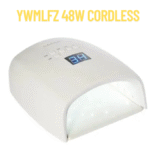Does everyday sounds like chewing, tapping, or breathing send you around the bend? You are possibly having misophonia, the condition in which the specific sounds cause intense emotions to you. Taking a misophonia test could greatly help understand which of these sounds you are sensitive to. Let this blog walk you through what is misophonia, the importance of a misophonia test and it helps you handling the same.
What is Misophonia?
But before we talk you through the misophonia test, you need to ask yourself a more important question; what exactly is misophonia? Misophonia, or “hatred of sound,” is a dislike for sound that some people argue stretches far beyond what would be expected given the situation. From annoyance and worry to actual anger or frenzied behavior.
Why Take a Misophonia Test?
Taking a misophonia test can show you which sounds bother you so much and the level of your overreactions. Recognizing what triggers you is the first step to acting on misophonia. Impressions of your answer to different sounds are recorded, most often you will be hearing various sounds.
How to Take a Misophonia Test
Steps to Take a Misophonia Test
Planning: Prepare yourself for an environment that is quiet and free from any distractions.
Listening: Listen to various sounds used in the audio segments. Common triggers can be noises such as chewing, breathing, or tapping.
Recording Reactions: Write down any emotions and physical responses towards each sound. Perhaps you are experiencing anxiety, anger or nausea? Here are the feelings, end to end… Rate them on a scale of intensity.
Analysis: The test results will determine which sounds are your biggest triggers and the overall severity of your misophonia.
Understanding Your Results
Once your misophonia test is finished, it is important to know what the results mean. If very specific sounds have an uncanny way of stirring you up, then misophonia has almost certainly sunk its claws into your brain. It can cause mild irritation all the way through to acute distress. If you are aware of this, however, then it can help you to identify treatments and ways to cope.
Treatment Interventions and Coping Mechanisms
After taking a misophonia test and finding your triggers, you will be able to search for different ways of coping and treatment.
Sound Therapy: Playing white noise or other masking sounds to make triggers less distinct
Cognitive behavioral therapy (CBT): A form of talk therapy that allows you to work with a therapist to positively alter your responses to noises that trigger misophonia.
Lifestyle Changes: Creating an environment or lifestyle that prevents triggers.
Seeking Professional Help
You may want to contact a medical professional if you feel your misophonia is significantly impacting your daily lifestyle. They can provide you with personalized recommendations for your unique situation.
Conclusion
Overall, the misophonia test is an important resource for someone who gets triggered by some intolerable sounds. The more you recognize your specific triggers and how much they affect you, the better equipped you will be to deal with your misophonia. Always keep in mind that the process of accepting and dealing with your sensitivities is a good start to a more stable and manageable life.
By undergoing a misophonia test, you may be able to gain knowledge in your own condition and how to address it that could eventually lead you to a happier and healthier life. If you have that particular feeling, the best solution is to carry out your support and take it for a test, because this is the beginning or the starting where you could find peace with or be of rest to some “sounds” if not most sounds!









